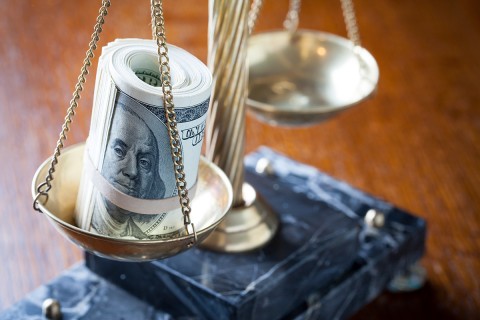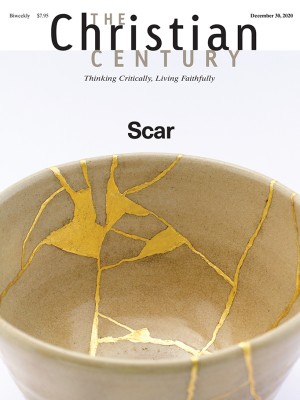It’s time to end the cash bail system
You don’t get people to show up in court by threatening to take away money they never had.

At a press conference last month, St. Louis pastor Norma Patterson told the story of a young woman who lives in the public housing complex near Patterson’s church. She was arrested after she got involved in a fight and broke a storm door off of its hinges. She couldn’t afford bail, so she was kept in jail for months while her trial date approached. In that time, she lost her job and custody of her daughter. The crime she was accused of: damaging government property. The amount of her bail: $40,000.
St. Louis isn’t the only jurisdiction with a draconian money bail system. Of the 500,000 people in the United States currently being held in jail until their trials, 80 percent are there because they can’t afford bail. Their median annual income is less than $20,000. Most of them are Black or Latino. All are legally innocent until their day in court.
Read our latest issue or browse back issues.
The theory behind bail is that it gives people accused of a crime an incentive to show up for their trial. In reality, the use of money bail creates a two-tiered justice system: while wealthier people can buy their freedom after being arrested, poorer people are held till trial.
“Bail is not a fine,” states the American Bar Association. “It is not supposed to be used as punishment.” But the bail system is clearly punitive. It punishes individuals by taking away their ability to work and care for their families, reducing their access to health care, and stripping them of the presumption of innocence. It punishes communities by increasing unemployment, breaking up families, and creating homelessness. It punishes taxpayers, who pay $14 billion a year to house people in jails before their trials.
Studies from jurisdictions that have eliminated bail—such as New Jersey, Washington, D.C., and Paris County, Texas—show that releasing people accused of nonviolent crimes until their trial doesn’t increase crime or decrease trial attendance rates. As it turns out, the most effective way to get people to show up in court isn’t to threaten to take away money they never had. It’s to send reminders before court dates, provide transportation, and help those who need it with child care.
Increasingly, people of faith are speaking out against money bail. In Illinois, for instance, clergy are rallying around the Pretrial Fairness Act, which would eliminate bail across the state. The legislation has a good chance of passing, particularly now that COVID-19 is spreading rapidly in some jails.
The pandemic is a good reason to oppose the pretrial detention of poor people, but it’s hardly the only one. During the 2018 General Assembly of the Presbyterian Church (USA), hundreds of Presbyterians marched to the St. Louis City Justice Center and gave $47,200 to a nonprofit organization that bails out low-level offenders. PCUSA stated clerk J. Herbert Nelson, one of the marchers, spoke of Christians’ call to work for economic justice: “This is what Jesus meant when he said to set the prisoner free.”
A version of this article appears in the print edition under the title “Unmaking bail.”





